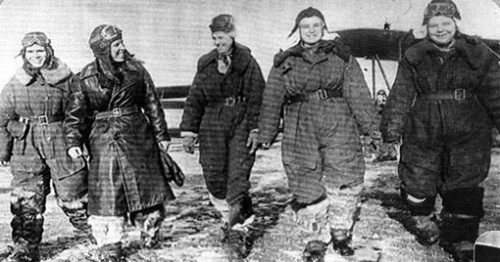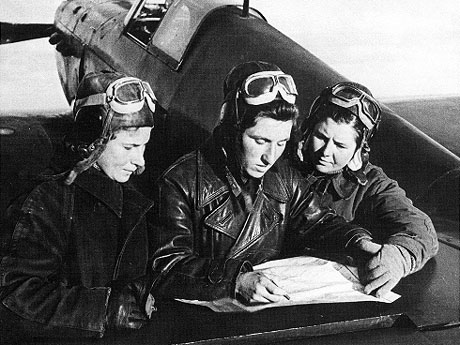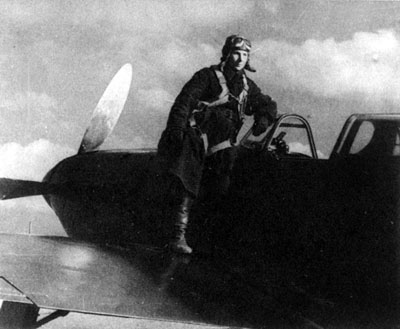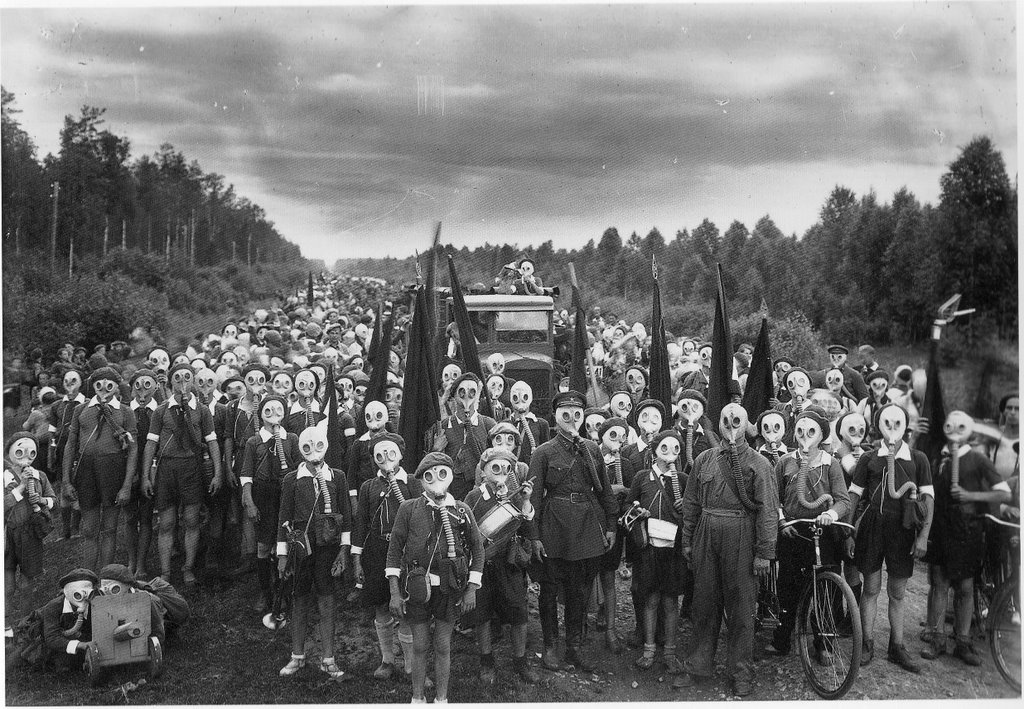Even the most cursory discussion of the history of women’s paid employment in the U.S. will include the importance of World War II, when the scarcity of men meant many jobs became available to women for the first time.
The U.S. wasn’t the only place this happened, of course. In the face of a massive attack by the Nazis, the Soviet Union allowed women to occupy combat positions, including setting up three regiments to fly night bombing raids (according to Wikipedia, it was the first nation to allow women to do so). The regiments became known as the Night Witches:
“We slept in anything we could find—holes in the ground, tents, caves—but the Germans had to have their barracks, you know. They are very precise. So their barracks were built, all in a neat row, and we would come at night, after they were asleep, and bomb them. Of course, they would have to run out into the night in their underwear, and they were probably saying,—Oh, those night witches!’ Or maybe they called us something worse. We, of course, would have preferred to have been called ‘night beauties,’ but, whichever, we did our job.”
Members of the 588th Night Bomber Regiment:
Lilya Litvyak:
In this video, Lidiya Gudovantseva recalls working as a sniper, including the first time she had to kill a German soldier and later being injured herself:
When the war ended, many women in the U.S. were pressured to leave their jobs; similarly, female Soviet soldiers found that opportunities for promotion dried up during peace time. They were apparently even barred from military colleges, closing off many positions to them altogether, though the military’s draft policies stipulated that women should be called up next time there was a war. Women served as a reserve labor force for the military, to be called up when needed (and praised on Soviet propaganda posters) but pushed out of the ranks to provide room for men the rest of the time.












